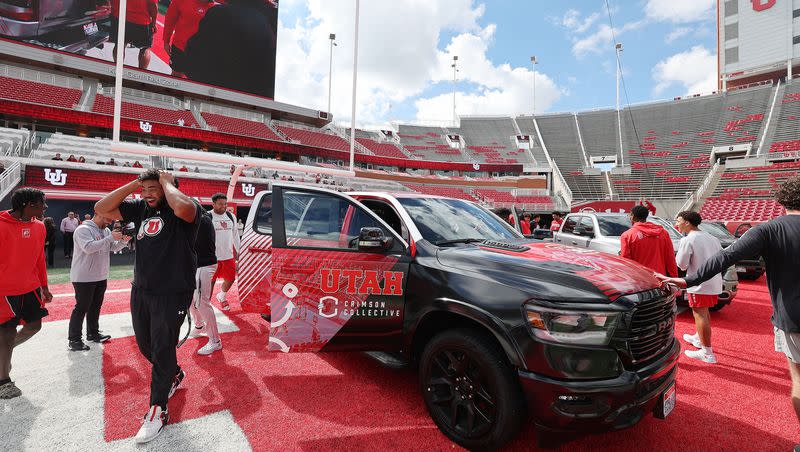Deseret News seeks dismissal of schools’ challenge to release of NIL contracts

The Deseret News asked a state court Friday to throw out a complaint five Utah universities filed challenging a State Records Committee decision that declared college athletes’ name, image and likeness contracts public records.
In addition to seeking a dismissal, Jeff Hunt, an attorney representing the Deseret News, wants a 3rd District judge to let the records committee decision stand and order the schools to provide the documents.
The filing argues that the court should order the release of the NIL contracts “because the public interests favoring disclosure of the records are greater than or equal to the interests favoring nondisclosure.”
The University of Utah, Utah State, Weber State, Utah Valley and Southern Utah filed a complaint last month asking the court to reverse the record committee’s decision. The schools argue that NIL contracts are protected under the federal Family Education Rights and Privacy Act, or FERPA, and are not subject to Utah’s public records law. They also contend the panel lacks the authority to order disclosure of the contracts.
Related
In October, the seven-member committee unanimously ruled that NIL contracts are not “education records” and ordered the universities to release the documents requested by the Deseret News under the state’s Government Records Access and Management Act, or GRAMA.
The order calls for the schools to disclose the contracts with an athlete’s name, sport and compensation, as well as the name of the business. Universities are allowed to redact personal information such as home addresses, phone numbers and email addresses. Commercial information can be redacted only if the athlete included a confidentiality claim when the contract was submitted to the school.
Schools across the country have refused to make NIL contracts public, deeming them “education records” under FERPA. The Utah committee’s ruling appears to be the first time a governmental body or court has rejected that argument.
Related
Earlier this year, the Deseret News requested NIL contracts and written agreements athletes submitted to the five Division I schools for at least the past year under the state Government Records Access and Management Act, or GRAMA. All five denied the initial requests and the subsequent appeals.
Attorneys for the universities argued that GRAMA did not apply because NIL contracts are “education records” under FERPA, and they thus are prohibited from disclosing them without the student’s consent. FERPA broadly defines education records as “records directly related to a student” and “maintained by an education agency.”
In October, the records committee granted the Deseret News’ appeal and ordered the universities to disclose the records.
The Deseret News contends the public has a right to the information to shed light on the role of schools in vetting NIL contracts and making sure they comply with NCAA eligibility requirements.
Most universities have policies and some states have laws requiring athletes to submit their NIL contracts to a compliance office for review or approval before an athlete signs the agreement. Schools say they review the contracts for a number of reasons, including wanting to weed out bad actors and to ensure the agreements don’t jeopardize players’ eligibility.
According to the committee, that constitutes doing the public’s business.
“Considering the public interest in college sports, the fandom, and the immense revenue our public institutions capture from athletics, it’s apparent to us that a university compliance officer reviewing these contracts to ensure players’ eligibility under the rules is indeed conducting the public’s business,” the order says.
Related
In its complaint, the universities say the records committee determined NIL contracts were not “education records” without reviewing them to see what information they contained. The records cannot be presumed to be the same across the institutions, attorneys wrote.
But during the October hearing, the universities objected to providing the contracts to the committee and told the panel it didn’t need to review them.
Attorneys for the universities also contend that some of the records are private or protected under GRAMA. They say the records are “in no way” related to government business, and releasing NIL contracts would be an unwarranted invasion of a college athlete’s privacy and reveal private financial information.
The records committee rejected those arguments in the hearing and concluded that it’s self-evident that college athletes give up some of their privacy when they sign deals to profit from their name, image and likeness.
Related

